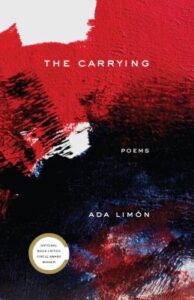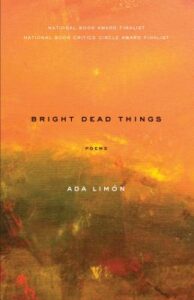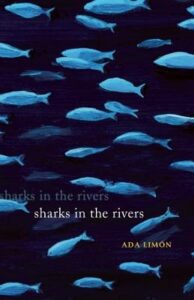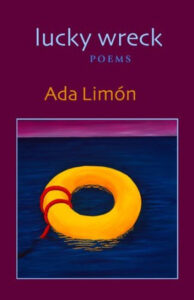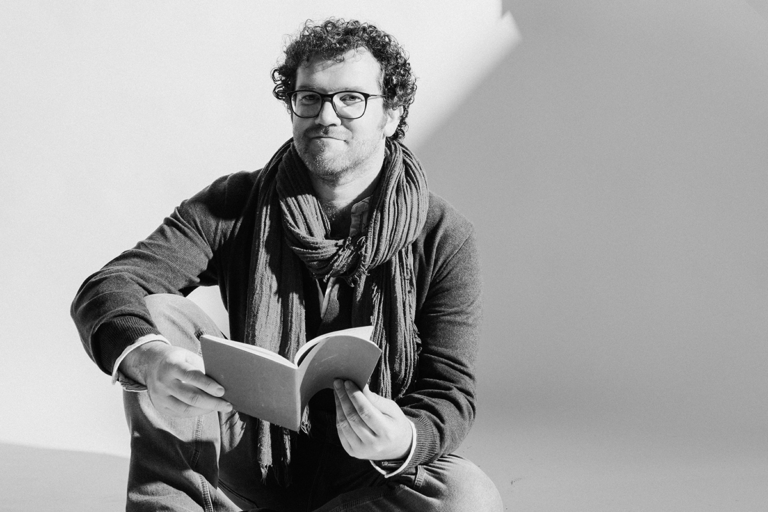Ada Limón
Wonder Woman
What stories or myths bring you strength?
This poem tells the story of a person living with invisible chronic pain who finds unexpected fortitude from a girl dressed as a superhero. Their encounter, “at the swell of the muddy Mississippi,” doesn’t have a fantasy ending, but instead finds strength and glory in bodies and myth.
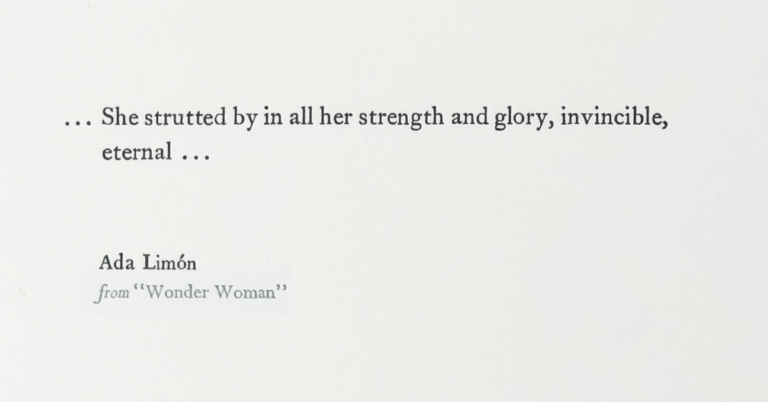
Image by Expedition Press/Expedition Press, © All Rights Reserved.
Guest
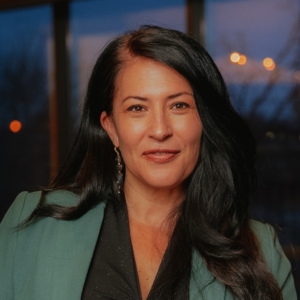
Ada Limón Ada Limón is the 24th Poet Laureate of the United States. She’s written six books of poetry, including The Carrying, which won the National Book Critics Circle Award for Poetry, and Bright Dead Things, which was a finalist for the National Book Award. Her most recent volume is The Hurting Kind. As poet laureate, she edited the collection You Are Here, part of her signature project focusing on how poetry can connect us to the natural world. She is a 2023 MacArthur Fellow, a former host of the poetry podcast The Slowdown, and an instructor in the MFA program at Queens University of Charlotte, in North Carolina.
Transcript
Pádraig Ó Tuama, host: My name is Pádraig Ó Tuama, and one of the reasons I’ve turned to poetry is because poetry isn’t necessarily interested in telling the whole story. Poetry is really interested in stopping in small moments and telling the story of that moment. And that can be really helpful when you’re stuck in a story where you can’t see the outcome, or you’re stuck in a story of pain and you’re not sure how it’s gonna work out, to turn to poetry that isn’t trying to say, “Oh, it’ll all be fine,” but it is helping you to cast your eye on small moments that can give you some fortitude and that can help you through.
[music: “Praise The Rain” by Gautam Srikishan]
“Wonder Woman” by Ada Limón:
“Standing at the swell of the muddy Mississippi
after the urgent care doctor had just said, Well,
sometimes shit happens, I fell fast and hard
for New Orleans all over again. Pain pills swirled
in the purse along with a spell for later. It’s taken
a while for me to admit, I am in a raging battle
with my body, a spinal column thirty-five degrees
bent, vertigo that comes and goes like a DC Comics
villain nobody can kill. Invisible pain is both
a blessing and a curse. You always look so happy,
said a stranger once as I shifted to my good side
grinning. But that day, alone on the riverbank,
brass blaring from the Steamboat Natchez,
out of the corner of my eye, I saw a girl, maybe half my age,
dressed, for no apparent reason, as Wonder Woman.
She strutted by in all her strength and glory, invincible,
eternal, and when I stood to clap (because who wouldn’t have),
she bowed and posed like she knew I needed a myth—
a woman, by a river, indestructible.”
[music: “The House You Wake In” by Gautam Srikishan]
Ada Limón is quite a cinematic poet, in the sense of that you can often see what’s happening. The story of the poem is that she’s in New Orleans, and an urgent care doctor has just given her a message, and she’s standing now at the swell of the Mississippi. And it seems to be that she’s coming to some kind of realization about the story of her battle with her body, “raging battle” with her body.
Pain is everywhere in this poem. There’s a doctor. Pain pills are there. There’s gonna be “a spell for later” on, so it isn’t just for now; it’s recognizing that pain is gonna come along. There’s this raging battle with the body. There’s vertigo that comes like a villain from a comic. “Invisible pain” then, as well — that people are going to comment on your pain, where somebody will see you and think, Well, you don’t look sick to me.
And anybody who’s lived with chronic illness will know that you, A, are living with your own symptoms, but B, you’re living with other people’s impressions of your symptoms, as to whether you should or shouldn’t be sick; as to whether you should or shouldn’t be on medication; as to what they think would help; as to whether they think the severity of your illness corresponds with how you narrate it or not. And that can be a burden on top of the question of living with your own malady. Living with people’s impressions — and people’s moral readings, really, about how you should or shouldn’t be present to your pain and present to any illness that you’re carrying — can be really complicated.
[music: “Every Place We’ve Been” by Gautam Srikishan]
I think lots of us, in school — and I know that poetry classes in school can sometimes really work for people, and sometimes they don’t. But there’s this word, “alliteration,” that you hear, where two words in a poem — either right next to each other or, maybe, near each other — start with the same letter, “Wonder Woman” being a perfect example. This poem is filled with alliteration. And it’s not just cleverness. She, I think, is bringing us into the idea that two people near each other can do something good to each other.
So, “muddy Mississippi”; “sometimes shit happens”; “fell fast”; “Pain pills”; “battle with my body”: “pain is both blessing”; then, “said a stranger”; “good side grinning”; “brass blaring”; “Wonder Woman”; “strutted,” “strength”; “who wouldn’t”; and “knew I needed.” So the whole way throughout this poem, she has peppered it, really, deliciously with alliteration. And all of that is indicating something about the knowledge of this poem. The knowledge of this poem is that two things, side-by-side, sometimes can add up to something that really, really elevates things.
And there’s characters in this poem — as well as magnificent settings, because we can be there, we can hear it — but there is an urgent care doctor, who I have a deep affection for. There’s a stranger, who really annoys me — “You always look so happy.” And both of them have been speaking to Ada Limón. But then there’s this girl, who says nothing, who doesn’t come near her, who doesn’t address her, but stands nearby. And there is this alliteration of two women near each other, that swells it into something mythological and like a superpower.
[music: “Every Place We’ve Been” by Gautam Srikishan]
Just in case anybody doesn’t know, Wonder Woman is a character from mythology. She’s a fictional superhero from DC Comics. And there’s a hint, of course, in the superhero motif in the title of the poem and then in the way that vertigo is like a comic “villain nobody can kill.”
And then this girl comes in, and she seems to be in such contrast to the stranger who says, “You always look so happy” — the girl says nothing. And she isn’t invisible, but she is just seen, initially, out of the corner of her eye, and there seems to be no reason for her to be dressed as Wonder Woman. And one of the questions here is, did the costume of Wonder Woman bring this girl into this magnificence of being, or did the girl bring the costume into the magnificence of being, by her own strut? The confidence and the brilliance of that word, “strut,” is so good. The word “strut” comes from an Old English word meaning to swell, to be puffed up. The girl is powerful, and she makes the costume powerful. And she steps into the story of this woman, this character, Wonder Woman, who came to the West, in the story of the comic, and who not only brought superpowers, but also brought brilliant critique.
Wonder Woman, as a character — you see it in the more recent films — is bewildered by generals who sit in rooms and don’t go out into battle. And Ada Limón is in a battle with her body. And she needs an engagement with this battle that is embodied, that is absolutely there; that knows how to stand; that knows how to be itself. And this is the kind of myth of woman that she needs. And this character of the girl walks onto the stage. Myth is not something that’s false; myth is something that’s so true that we find fantastical ways to tell it. And so myth of Wonder Woman here goes beyond superpowers into the question of embodiment and empowerment as woman.
[music: “The House You Wake In” by Gautam Srikishan]
There’s some brilliant words used here, and I think it’s really important to pay attention to the gendered nature within which words are used; “strutted,” “strength,” “glory,” “invincible,” “eternal,” “bowed,” “posed,” “indestructible.” Ada Limón is making a really powerful statement about what are the words appropriate to be used within the context of female embodiment and gendered embodiment? And how can we use words of great strength and power in a way that isn’t associating them only with one gender, but is associating them with many genders?
Another thing to say at the final part of this poem, we’re brought into this girl who has attention given to her. And she bows “and posed like she knew I needed a myth.” And then there’s this last line, six words: “a woman, by a river, indestructible.” And the question here is, who’s being spoken about? Is it the girl, and she’s been spoken of as a girl up until now, so maybe this girl is being portrayed as woman? Maybe it’s the mythological character of Wonder Woman or a powerful woman from mythology. Or maybe Ada Limón, in seeing this person who she doesn’t know, standing in this costume and holding herself with such glory, maybe Ada Limón herself is the woman by the river, indestructible.
Is the woman by the river the girl, or is the woman by the river the poet? It seems to me that, by being alongside each other, they have lent each other strength that has magnified each of them into the possibility of being something that they would not feel like they could be, just by themselves. And the character of this girl is in such contrast to pity and in such contrast to those who offer words or those who might try to reach out with sympathy because of illness. She’s doing nothing. She’s taking the credit for the story, she’s holding herself, and she’s taking it with pride; and then, in so taking it, she’s sharing it back. There’s a power to be shared in this. It’s not a power of pity to just be given down to somebody. This is a power that’s reciprocal and that expands out when it’s given.
[music: “Outstretched Hand” by Gautam Srikishan]
I have loved Wonder Woman since I was a child. I loved the 1970s television show, which I consumed on a Sunday afternoon.
I’ve had a Wonder Woman belt buckle, possibly for the last ten years. And sometimes, somebody has said to me, “Oh, do you put it on when you need the strength?” Some of why I wear that belt buckle is because, certainly, as a boy growing up in Ireland — I suppose it was the early ’80s by the stage I was watching Wonder Woman — very definitely I got the message, really clearly, to say, Well, as a boy, you shouldn’t be interested in Wonder Woman, because female superheroes are just for girls. And that was powerful, to me.
And I think the older I got, the more I thought, Screw it. No. Wonder Woman’s amazing. And I really loved embracing that, comic characters are silly, in a certain sense, but they’re not silly in the sense of that they reveal us. And I think I have loved embracing the fact that I have loved Wonder Woman, as a way of thinking that I was born to live a different kind of life that was a long and slow project of learning to move away from the ideas about what a boy should do and what’s just for girls.
So part of the message of this poem is, where do you look for strength? And in this poem, the character of the girl isn’t trying to give strength to the character of Ada Limón in the poem. The character of the girl is living in her own strength. And the costume is really peripheral to that. The character of the girl, she knows how to strut. She holds so much attention, and she’s able to hold that. And in holding it, she’s showing what’s possible. And I suppose, one of the invitations of this poem is to imagine, what is it that you can give your attention to that might share some attention and some power back with you? Not for some kind of superhero ending, because this isn’t a poem with a superhero ending at the end, where everything’s fine and all the pain’s gone: This is a way of having fortitude in the midst of the difficulties of life but knowing, nonetheless, how to feel like you’re not alone and that there are myths that are made for you and that might give you strength.
[music: “Outstretched Hand” by Gautam Srikishan]
“Wonder Woman” by Ada Limón:
“Standing at the swell of the muddy Mississippi
after the urgent care doctor had just said, Well,
sometimes shit happens, I fell fast and hard
for New Orleans all over again. Pain pills swirled
in the purse along with a spell for later. It’s taken
a while for me to admit, I am in a raging battle
with my body, a spinal column thirty-five degrees
bent, vertigo that comes and goes like a DC Comics
villain nobody can kill. Invisible pain is both
a blessing and a curse. You always look so happy,
said a stranger once as I shifted to my good side
grinning. But that day, alone on the riverbank,
brass blaring from the Steamboat Natchez,
out of the corner of my eye, I saw a girl, maybe half my age,
dressed, for no apparent reason, as Wonder Woman.
She strutted by in all her strength and glory, invincible,
eternal, and when I stood to clap (because who wouldn’t have),
she bowed and posed like she knew I needed a myth—
a woman, by a river, indestructible.”
[music: “Praise The Rain” by Gautam Srikishan]
Lily Percy: “Wonder Woman” comes from Ada Limón’s book The Carrying. Thank you to the publisher, Milkweed Editions, who gave us permission to use Ada’s poem. Read it on our website, at onbeing.org.
Poetry Unbound is Chris Heagle, Erin Colasacco, Serri Graslie, Eddie Gonzalez, Lilian Vo, Christiane Wartell, Karen Navarre Wicki, Karyn Towey, Sue Ariza, and me, Lily Percy. Our music is composed and provided by Gautam Srikishan and Blue Dot Sessions. This podcast is produced by On Being Studios, which is located on Dakota land. We also produce other podcasts you might enjoy, like On Being with Krista Tippett, Becoming Wise, and This Movie Changed Me — find those wherever you like to listen or visit us at onbeing.org to find out more.
Books & Music
Recommended Reading
The On Being Project is an affiliate partner of Bookshop.org and Amazon.com. Any earnings we receive through these affiliate partnerships go into directly supporting The On Being Project.





